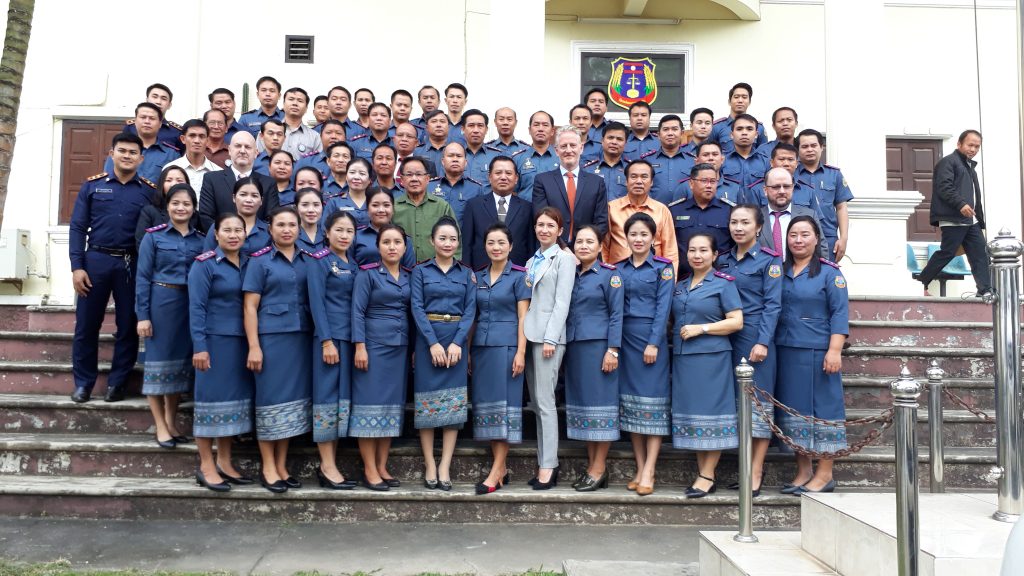
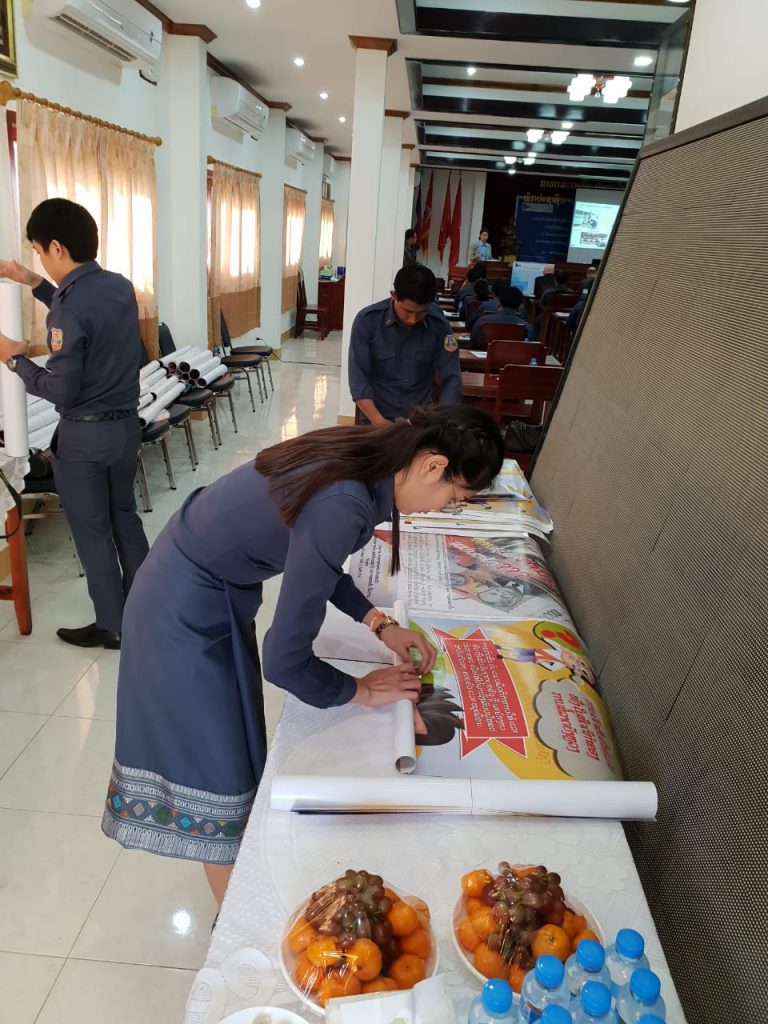
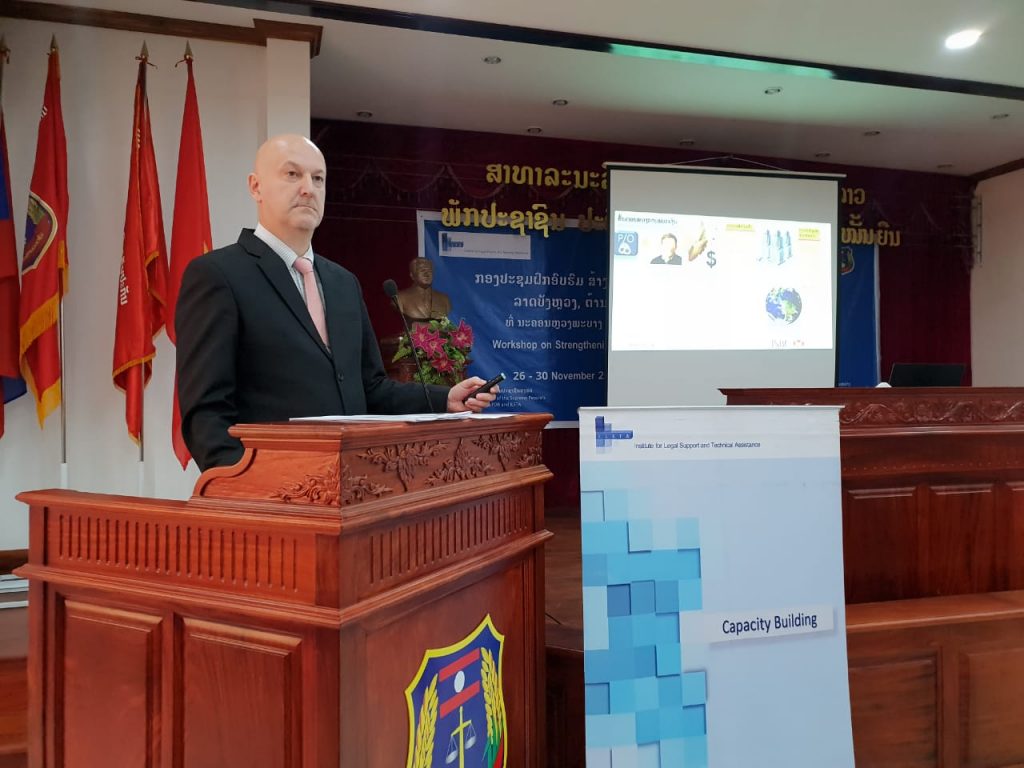
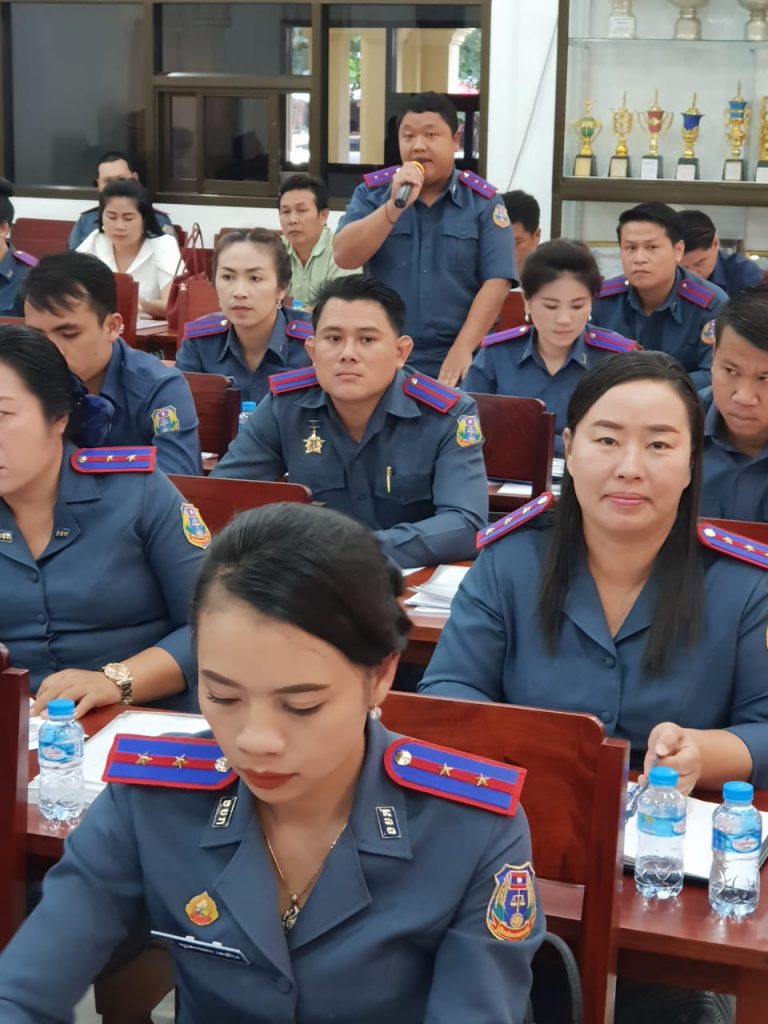
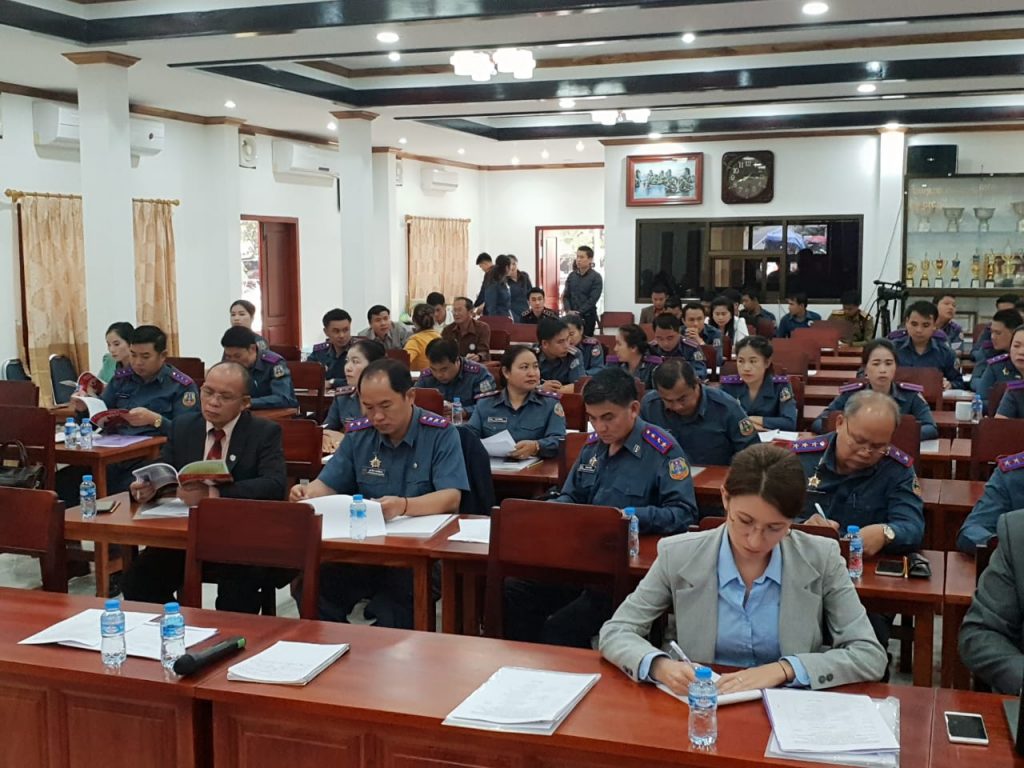
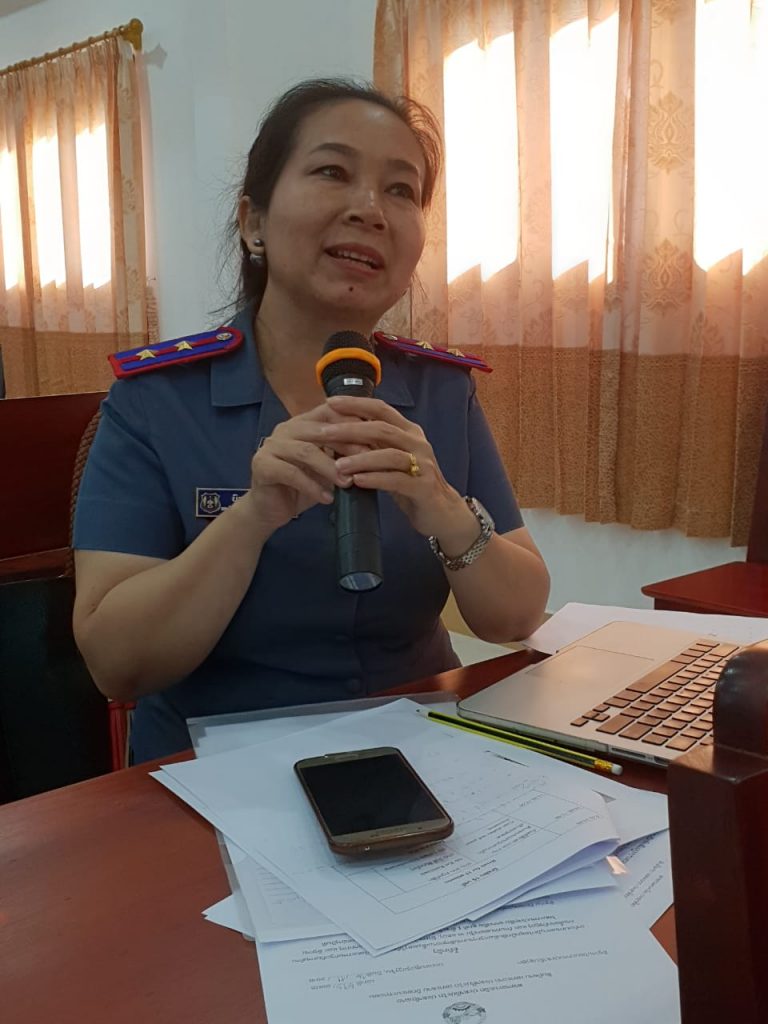
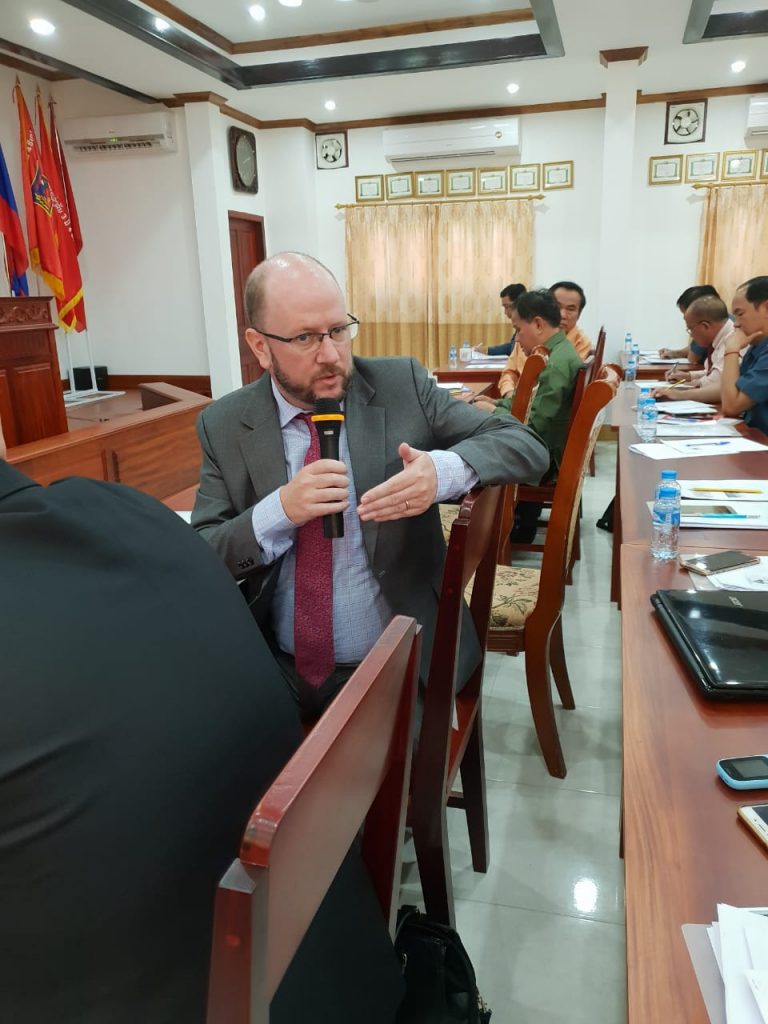
Prosecutors from 10 provinces took part in a multi-agency workshop on “Strengthening Capacities on Monitoring, Anti-corruption, Anti-money Laundering and Asset Recovery” from 26th to 30th November in Luang Prabang.
The workshop brought together representatives from the State Inspection Authority, the People’s Supreme Court and the Law Bar Association. Presentations and discussions focused on the national legal framework for anti-corruption, the newly promulgated Penal Code, and asset recovery proceedings.
Mr. Bounyang Chandalasane, Deputy Prosecutor of Lao PDR, in his opening remarks, stressed the importance of the international expertise in the fight against corruption, as it poses significant challenges to all countries in the region, including Laos.“To properly combat these phenomena, law enforcement authorities with investigating powers, prosecutors and judges must acquire more sophisticated skills and comply with international standards.”
The Institute for Legal Support and Technical Assistance (ILSTA), with the support of Luxembourg and Canada, provided training on substantive issues, defining types of corruption, practical techniques, case studies on the laundering and subsequent recovery of stolen assets.
The UN Convention Against Corruption (UNCAC), which Laos signed it in 2003 and became a State Party to on 29th of September 2009, stresses the need to fight corruption worldwide. It also sets up a structure of review mechanisms.
The Lao implementation of UNCAC was reviewed in 2012 by Luxembourg and Mongolia, looking at chapter III and IV, criminalisation and international cooperation. The second review cycle now being conducted by Cyprus and Pakistan is looking at chapters II and V, covering preventive measures and asset recovery.
In 2005 the Lao PDR drafted its first anti-corruption law, which was amended in 2012 reflecting the UNCAC needs.
President of ILSTA, Mr. Richard Philippart said that “corruption is a serious threat for many countries and so that Laos remains on track to reach its development objectives and keep on attracting foreign investment, it will be important for Laos to effectively address corruption and use its anti-corruption law.’’
Southeast Asia is exposed to a number of security challenges, illicit narcotics, precursors – to manufacture narcotics, human trafficking, smuggling of migrants, illegal wildlife trade, counterfeit products, money laundering, these matters are not to be seen as separate all are interconnected and corruption makes them possible. Organised crime is a real threat to national security and puts at risk national development achievements.
In partnership with Lao authorities, ILSTA is responding to a variety of these crucial needs throughout the country, from capacity building in the legal sector, awareness raising on thematic issues at grassroots level, to systematic specialised English classes for government staff.

Comments are closed.